- JST Home
- /
- Strategic Basic Research Programs
- /
 PRESTO
PRESTO- /
- project/
- Technological Foundation of Advanced Quantum Computing and Information Processing/
- [Quantum Software] Year Started : 2019
[Quantum Software] Year Started : 2019
Hiroshi Ueda
Advancement of data compression technique for quantum states by tensor networks
Researcher
Hiroshi Ueda
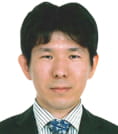
Associate Professor
Center for Quantum Information and Quantum Biology
Osaka University
Outline
To maintaine various quantum states with a small amount of information, a framework called tensor network (TN) is attracting attention. In this research, we will achieve constructing a quantum many-body solver that works robustly in a quantum / classical hybrid computer by introducing TN. In particular, we propose numerical methods that utilize quantum advantages that can quickly evaluate physical quantities in superpositions of different classes of TN states in a quantum computer, and build procedures for expressing various quantum states more compactly.
Tsuyoshi Ookubo
Development of ground state calculation method for quantum many body systems through tensor network states
Researcher
Tsuyoshi Ookubo
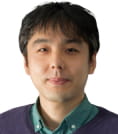
Project Associate Professor
Graduate school of Science
The University of Tokyo
Outline
In this project, we develop ground state calculation method in NISQ devices mainly for quantum spin systems. By using knowledge of tensor network states, which has developed in the condensed matter physics, we begin with designing quantum circuits suitable for certain two-dimensional quantum systems. Our final goal is to develop an efficient algorithm for general two- and three-dimensional quantum many body systems.
Yuki Kurashige
Development of quantum-classical space partitioning methods for quantum many-body problems
Researcher
Yuki Kurashige

Associate Professor
Graduate School of Science
Kyoto University
Outline
Predicting electronic properties of microscopic molecular systems based on the fundamental equations of quantum mechanics is one of the dreams of material science. By the recent developments of quantum computer hardware, the dream is becoming a reality. But, at the current situation where the size of the quantum computers, e.g. the number of qubits, is limited, it is obvious that we still need the help of classical computers to exploit the power of quantum computers. In this project, we will develop a quantum-classical algorithm that solves strongly correlated quantum many-body problems of molecules by taking advantage of the characteristics of both types of computers.
Kenji Sugisaki
Development of highly efficient quantum algorithms for quantum chemical calculations
Researcher
Kenji Sugisaki
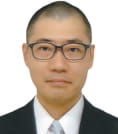
PRESTO Researcher
Japan Science and Technology Agency
Outline
Quantum chemical calculations are one of the most intensively studied realms in quantum computing. Currently available quantum algorithms for quantum chemistry works well for the molecules with simple electronic structures, but applying these methods to molecules having complicated electronic structures like open shell and quasi-degenerate systems is very difficult. To make quantum computers really useful as research tools of chemistry, development of new quantum algorithms to efficiently treat complicated electronic structures are necessary. In this project I will develop new quantum algorithms for the quantum chemical calculations capable to treat quasi-degenerate systems having many low-lying electronic states.
Takanori Sugiyama
Development of foundational technology for the implementation of highly accurate quantum operations
Researcher
Takanori Sugiyama

Researcher
Fujitsu Research
Fujitsu Limited
Outline
This project consists of four subprojects, the development of methods for evaluating elemental quantum operations, the development of methods for calibrating control systems, the development of methods for identifying noise sources, and the implementation of software for using the methods developed. Each of the three newly developed methods necessitate theoretical, numerical, and experimental research. The theoretical research aims at developing methods that overcome the known problems of current methods, by using and developing mathematical tools in quantum physics, quantum computation, and statistics. The numerical and experimental research aim at verifying the practical usefulness of the methods developed. Implemented software will be released according to the progress of the development of these methods.
Yasunari Suzuki
Faule-tolerant quantum computing based on heterogeneous device and control
Researcher
Yasunari Suzuki
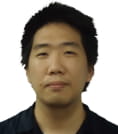
Researcher
Computer and Data Science Laboratories
Nippon Telegraph and Telephone Corporation
Outline
Practical quantum devices contain complex inhomogenuity originated from quantum nature. This is why it is hard to scale quantum devices up to size enough for practical quantum computing. In this study, I establish a theoretical framework to treat inhomogenuity in design and control of quantum electronics as a tool for constructing quantum computing system. Based on the framework, I propose a scalable and high-performance fault-tolerant quantum computing system based on heterogeneous device and control.
Andrew Sudiro Darmawan
Numerical methods for studying real-world quantum devices
Researcher
Andrew Sudiro Darmawan

PRESTO Researcher
Japan Science and Technology Agency
Outline
Noise in real-world quantum devices is currently the biggest obstacle to practical implementation of quantum information processing (QIP). In this project I will develop numerical methods to study the effect of noise and imperfection on quantum information processing. Using these methods, we will be able to propose methods to deal with noise in QIP, bringing functional devices closer to reality. The emphasis will initially be on near-term quantum error correcting codes, but since the techniques are quite general, we will likely be able to apply them to other QIP tasks too.
Hidefumi Hiraishi
Development of Quantum Hybrid Algorithms for Combinatorial Optimization
Researcher
Hidefumi Hiraishi

Associate Professor
Department of Mathematics, College of Science and Technology
Nihon University
Outline
This research project will develop quantum hybrid algorithms for combinatorial optimization problems. For this purpose, parameterized algorithm theory and graph-matroid decomposition techniques are exploited to identify substructures which are hard to handle by classical computers among real large-scale data. Then we will design quantum subroutines which accelerate computational tasks on these structures on intermediate-size quantum computers. Furthermore, we verify and evaluate the performance of the developed algorithms on real data by implementing them on NISQ devices.
Yuichiro Matsuzaki
Quantum IoT architecture
Researcher
Yuichiro Matsuzaki
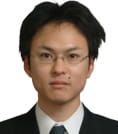
Senior researcher
Research Center for Emerging Computing Technologies
National Institute of Advanced Industrial Science and Technology
Outline
Recently, remarkable progress has been achieved in IoT (internet of things). However, for the practical use of the IoT, it is essential to realize a secure architecture to prevent information leakage. Here, we propose quantum IoT with quantum sensing, quantum computation, and quantum internet where quantum properties guarantees the security. In our architecture, quantum sensors with an ultimate sensitivity acquire a huge amount of data, and these information will be sent to a cloud server with a quantum computer to analyze the big data, and the calculation results will be sent to the client in a secured manner by quantum internet. The quantum IoT will have a large impact on the industries, and will contribute to a smart society.
Wataru Mizukami
Development of an innovative complex-wavefunction quantum simulators towards advancing the frontiers in computational chemistry
Researcher
Wataru Mizukami

Associate professor
Center for Quantum Information and Quantum Biology
Osaka University
Outline
In this research, we develop quantum-classical hybrid algorithms, especially targeting certain problems in quantum chemistry where one cannot assume that wavefunctions are real. The existing quantum chemistry program packages for classical computers are not good at such problems, while quantum computers treat complex-number wavefunctions inherently in a natural way. The developed algorithms are implemented and tested using a quantum circuit simulator. We aim to pioneer promising application areas of quantum computers through shedding light on immature areas in quantum chemistry. The areas include, for example, heavy-element systems with strong relativistic effects, and photochemical reactions on solid surfaces.













